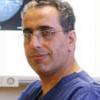Breast cancer screening has been a subject of controversy over the last few decades because the diagnostic tests are not always accurate. This means that there is an intrinsic tendency to err on the side of safety and to ‘over diagnose’ otherwise healthy patients.
A recent review, published in the Lancet Medical Journal, showed that screening led to 3,971 women in the UK receiving unnecessary treatment every year; however 1,307 lives are saved. The problem with Breast Cancer Screening is that it is impossible to predict in many cases whether a tumour will become harmful or not in each individual (see DCIS). This recent study does however show that screening saves a significant amount of lives.
Under the NHS, Women aged 50-70 are invited for breast cancer screening every 3 years in order to try and catch the cancer early. However, for many women a ‘false positive’ screen may lead to unnecessary treatment. It is therefore vital to be aware of, and to weigh up the potential harms and benefits of screening. Professional advice is needed, but there is also an emphasis is on the individual to do research into the subject. Where there is any doubt, making an informed choice is naturally only possible when you are provided with the latest authoritative information.








